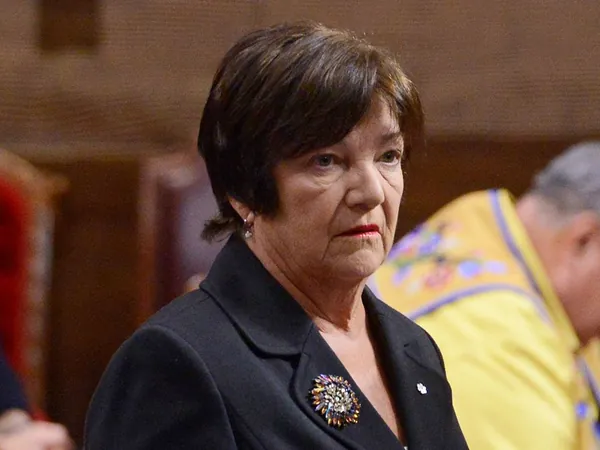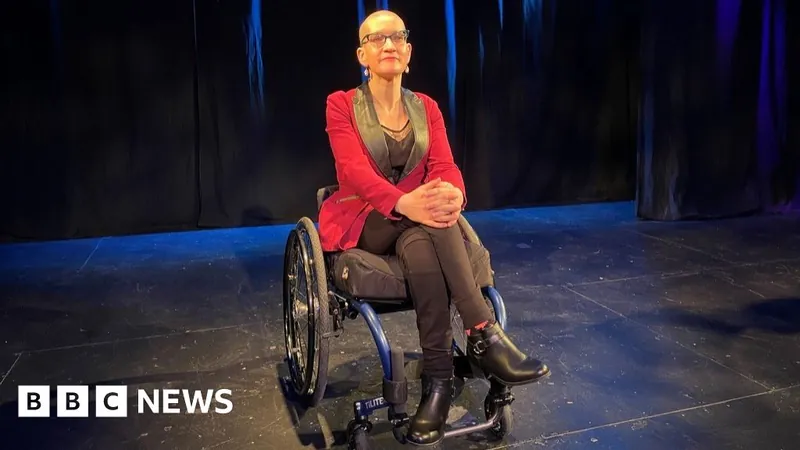
Former Liberal Minister Under Scrutiny for Alleged Lobbying During COVID-19 Without Registration
2025-03-31
Author: Amelia
In a striking revelation, Sheila Copps, a former Deputy Prime Minister of Canada, has come under fire for potentially circumventing lobbying regulations amidst the COVID-19 pandemic. While she claims that her activities during this time were legitimate, new evidence raises questions about the interactions she had with government officials regarding important medical supplies.
In an April 2021 conversation with the National Post, Copps asserted, “I did check with the lobbying office and because I’m not being paid to lobby, I’m not a lobbyist.” Instead, she referred to herself as a "salesman" with her company, MediPro Canada Inc., which deals in medical supplies.
However, recent emails obtained through access-to-information laws reveal Copps met with a senior aide in the office of then-Procurement Minister Anita Anand, discussing potential sources for essential supplies like masks as early as March 2020—the month when the World Health Organization declared COVID-19 a global pandemic. Despite these interactions, she did not register them in the official lobbying database, sparking concerns about the potential conflicts of interest in her dealings.
One of the companies Copps was involved with, Bulk MRO, proposed to supply N95 masks manufactured by 3M, but this offer was later deemed unsatisfactory by 3M. The company's officials flagged the case to law enforcement after discovering discrepancies in the offer’s legitimacy. While Copps continued to press for meetings to solidify the supply, the deal fell apart when 3M confirmed that the proposed supplier from Vietnam was unauthorized.
This raises grave concerns about preferential treatment and the lines between lobbying, influencing, and business dealings during a national emergency. According to Robert Shepherd, a public policy professor, “Canadian citizens have a right to know who’s influencing their government.” He emphasized that it is essential to determine whether communications facilitated by non-paid lobbyists like Copps should be more closely regulated.
The Lobbying Act mandates that individuals engaged in lobbying register their communications if they spend a significant portion of their time (20% or more) on such activities. Critics argue that the current regulations create loopholes, allowing individuals in positions like Copps to navigate around stringent lobbying rules.
Significantly, while Copps arranged for meetings during a time when many Canadian manufacturers struggled to get government appointments, companies such as BTNX—a rapid-test supplier she worked with—eventually secured over $2 billion in federal contracts, raising further questions about how contracts were awarded during a procurement rush characterized by urgency and high stakes.
The scrutiny of Copps' actions is compounded by previous controversies surrounding the federal government's procurement processes during the pandemic. There have been claims of favoritism and ineffectiveness, especially concerning the 'Buy Canadian' initiative aimed at supporting local manufacturers.
As discussions continue regarding the necessity of reforming lobbying laws for better transparency, this situation serves as a critical reminder of the importance of accountability, especially during crises. Stakeholders suggest revisiting the regulations around in-house lobbyists, as these loopholes can lead to an opaque governance landscape that undermines public trust.
As the federal government navigates these complex issues, it remains to be seen what implications Copps’ actions will have for lobbying practices in Canada and how the government will respond to demands for greater clarity and fairness in contract-awarding processes.









 Brasil (PT)
Brasil (PT)
 Canada (EN)
Canada (EN)
 Chile (ES)
Chile (ES)
 Česko (CS)
Česko (CS)
 대한민국 (KO)
대한민국 (KO)
 España (ES)
España (ES)
 France (FR)
France (FR)
 Hong Kong (EN)
Hong Kong (EN)
 Italia (IT)
Italia (IT)
 日本 (JA)
日本 (JA)
 Magyarország (HU)
Magyarország (HU)
 Norge (NO)
Norge (NO)
 Polska (PL)
Polska (PL)
 Schweiz (DE)
Schweiz (DE)
 Singapore (EN)
Singapore (EN)
 Sverige (SV)
Sverige (SV)
 Suomi (FI)
Suomi (FI)
 Türkiye (TR)
Türkiye (TR)
 الإمارات العربية المتحدة (AR)
الإمارات العربية المتحدة (AR)